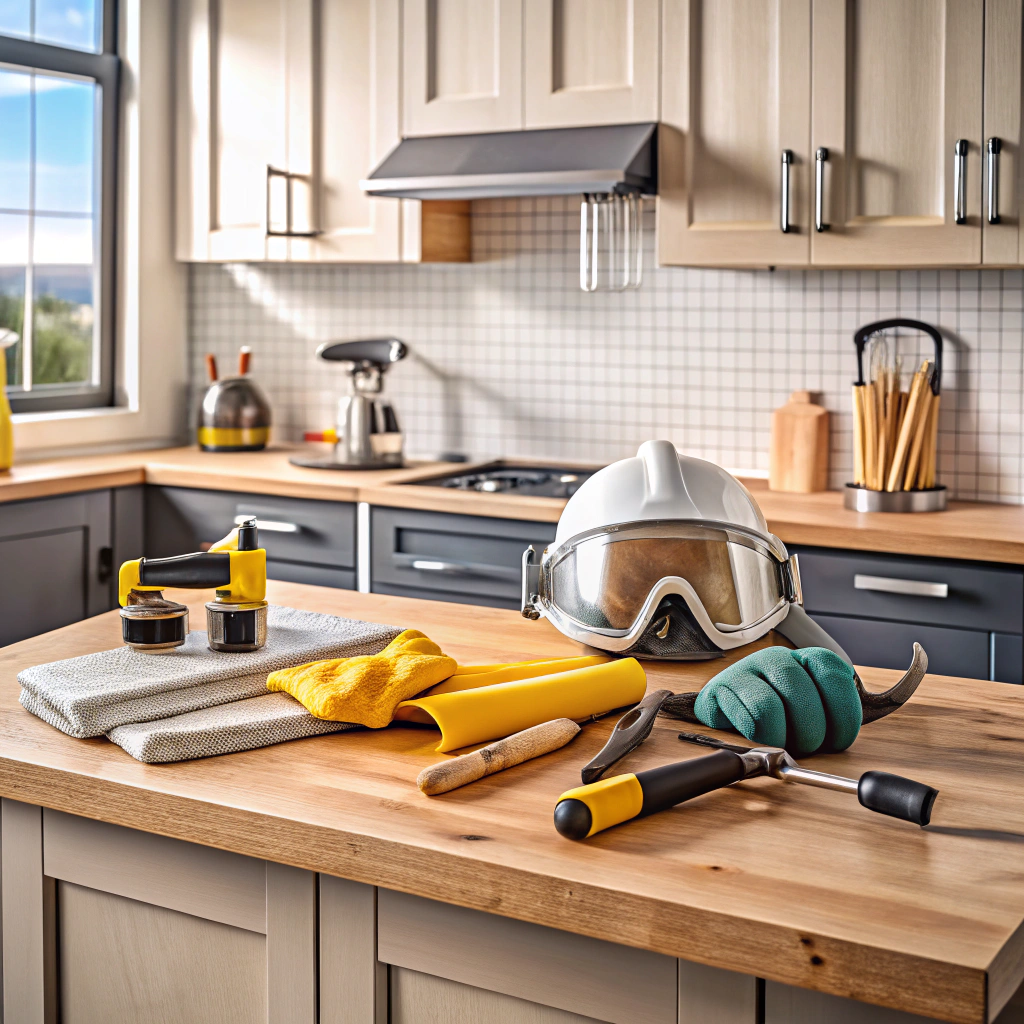Last updated on
Discover the convenience of renting a kitchen and how it can transform your culinary endeavors in this informative guide.
Have you ever found yourself in a situation where you need to cook for an event or a special occasion, but your kitchen is just not big enough? Or maybe you’re planning to start a food business, but the cost of renting a commercial kitchen is too high. Whatever your reasons may be, the idea of renting a kitchen might have crossed your mind.
But can you really rent a kitchen? Is it legal and safe? In this article, we will explore the world of kitchen rentals and help answer these questions for you. So buckle up and let’s dive in!
What's Inside
Purpose of Renting a Kitchen
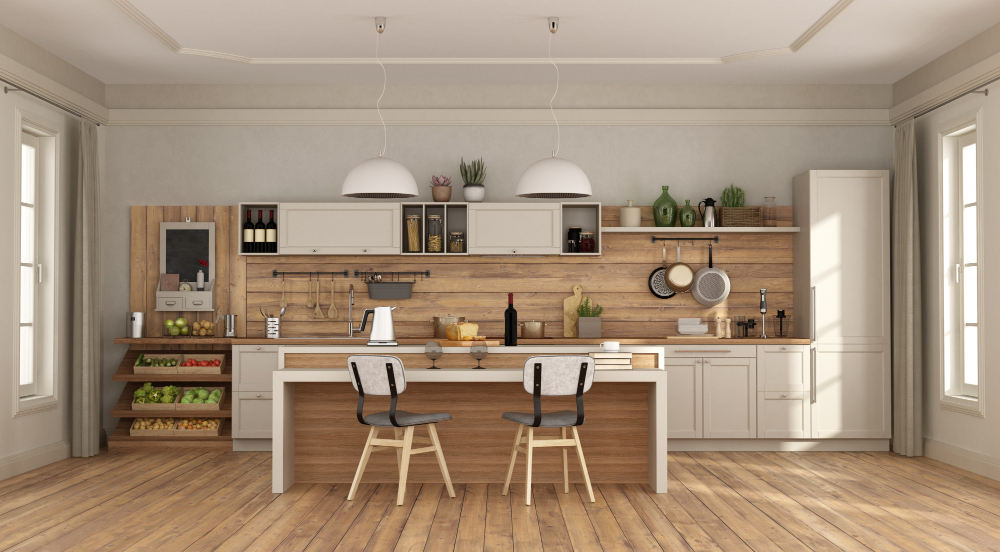
The purpose of renting a kitchen can vary depending on the individual’s needs. For those who love to cook, but have limited space in their own kitchens, renting a kitchen can provide them with the necessary equipment and space to create culinary masterpieces for special occasions or events.
On the other hand, entrepreneurs looking to start their own food businesses may find that commercial kitchens are too expensive and opt for rental kitchens as an affordable alternative.
Renting a kitchen also provides an opportunity for individuals or groups who want to experiment with new recipes without investing in expensive equipment upfront. It allows chefs and bakers alike access to larger spaces where they can prepare multiple dishes at once.
Whatever your reason may be for considering renting a kitchen – whether you’re hosting an event or starting your own business – there are plenty of options available that cater specifically towards your needs.
Types of Kitchens Available
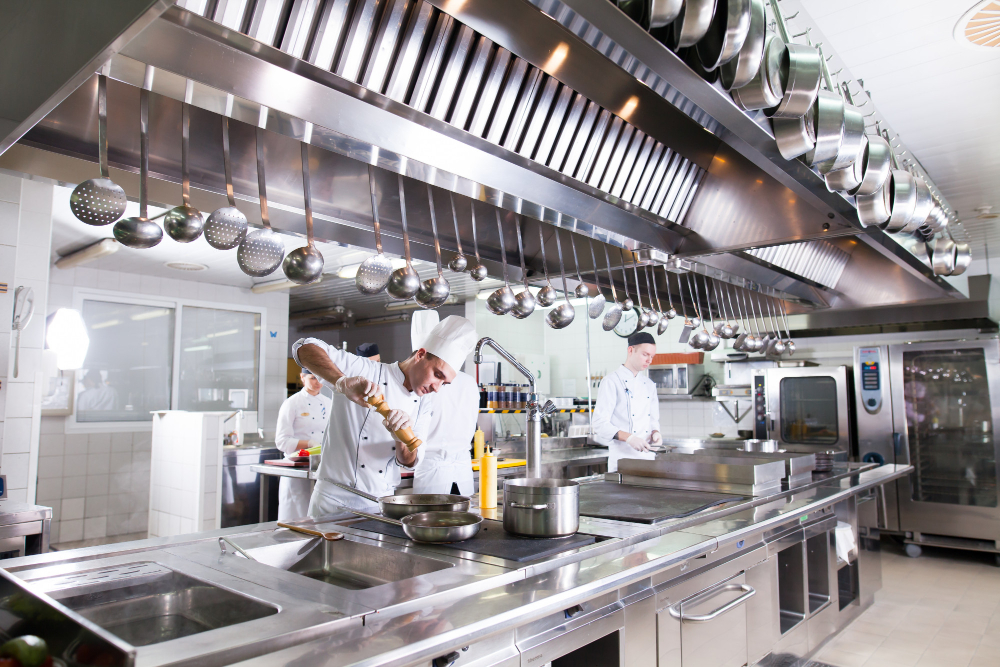
For instance, if you’re planning to start a food business or need a space for large-scale cooking projects, then commercial kitchens might be the best option for you. These types of kitchens are designed specifically for professional use and come equipped with industrial-grade appliances and equipment.
On the other hand, if you’re looking for something more affordable or just need extra space to cook in your home kitchen, then residential kitchen rentals might be suitable. These can range from small apartments with basic amenities like stovetops and ovens to larger homes that offer full-sized commercial-grade appliances.
Another type of rental is shared kitchen spaces where multiple individuals or businesses share one communal area. This option is ideal if you don’t require exclusive access but still want access to high-quality equipment at an affordable price point.
Ultimately, the type of rental that’s right for you will depend on your specific needs and budget constraints.
Commercial Vs. Residential Kitchens
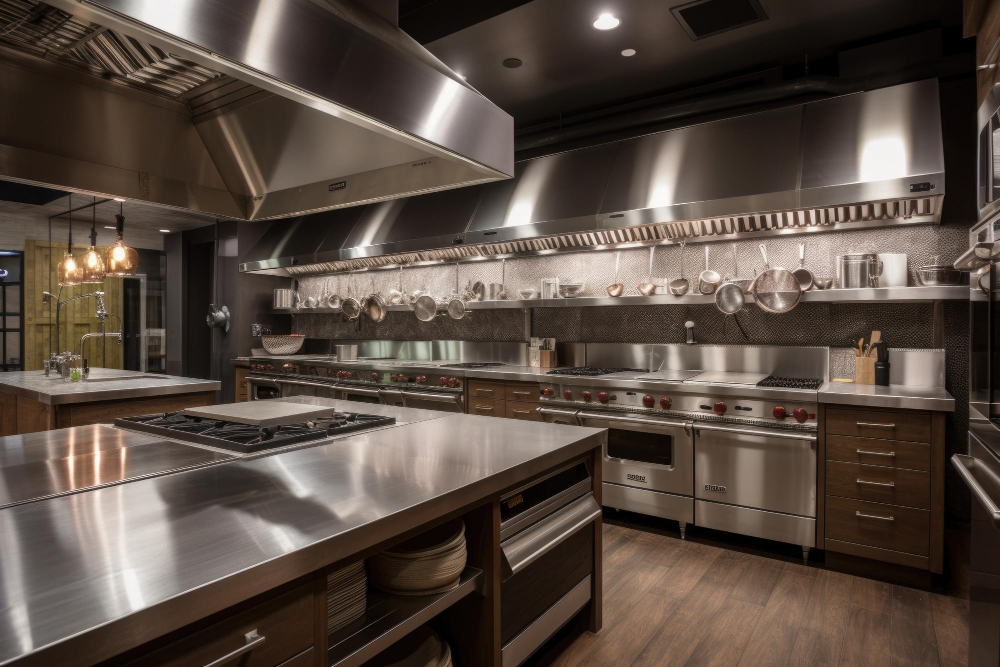
Commercial kitchens are designed for food businesses and are subject to strict regulations by health departments. They typically have larger spaces, industrial-grade equipment, and specialized ventilation systems that ensure proper air circulation.
On the other hand, residential kitchens are found in homes or apartments and may not be suitable for large-scale cooking operations due to their limited space and equipment. However, they can still be rented out for smaller events such as private dinners or cooking classes.
Before deciding which type of kitchen rental is right for you, consider your needs carefully. If you’re planning on starting a food business that requires regular use of a commercial kitchen with specific certifications like catering services or baking goods production then renting one might be the best option.
However if your needs involve hosting small gatherings at home with friends & family then opting for a residential rental could save money while providing an intimate setting.
It’s important to note that each state has its own laws regarding commercial vs.
Shared Kitchen Spaces

These are commercial kitchens that multiple food businesses or individuals can rent out at different times. Shared kitchens offer all the necessary equipment and amenities of a commercial kitchen without having to pay for an entire space yourself.
One of the biggest advantages of shared kitchen spaces is that they allow you to network with other food entrepreneurs and share ideas. You may even find potential collaborators or partners in these communal settings.
However, keep in mind that sharing a space means adhering strictly to schedules and cleaning responsibilities so as not to disrupt others’ operations. It’s also important to note any restrictions on storage options since there will likely be limited space available.
Benefits of Kitchen Rentals

One of the most significant advantages is cost savings. Renting a commercial kitchen space can be expensive, and it may not make sense for small businesses or individuals who only need occasional access to a larger kitchen.
Another benefit is flexibility. With rental kitchens, you have the option to choose from different types of spaces that suit your needs best – whether it’s an hourly rental or long-term lease agreement.
Renting a shared commercial kitchen space allows you to network with other culinary professionals and learn new skills from them while sharing equipment costs.
Lastly, renting test kitchens for product development purposes gives entrepreneurs an opportunity to experiment with recipes without committing too much time and money upfront on building out their own facility.
Rental Duration Options

Some rental companies offer hourly rates, while others provide daily or monthly packages. Hourly rentals are ideal for those who need the kitchen for a short period of time and want to save money.
This option is perfect if you only need the space for a few hours to prepare food for an event or test out new recipes.
On the other hand, daily rentals work best if you require more extensive use of the kitchen facilities over several days. For example, if you’re planning on hosting multiple events in one week or running cooking classes that span several days.
Monthly packages may be suitable when starting up your own food business as they allow access to all necessary equipment and storage solutions without having to invest in expensive appliances upfront.
Pricing and Costs

Commercial kitchens tend to be more expensive than residential ones due to their larger size, specialized equipment, and additional regulations. However, shared kitchens or incubator spaces may offer more affordable options for those just starting out in the food industry.
It’s important to consider all costs associated with renting a kitchen before making any commitments. Some rental companies may charge hourly rates while others require monthly fees or long-term contracts.
Additional expenses such as utilities, cleaning fees, storage solutions or equipment rentals should also be factored into your budget.
To ensure that you are getting the best value for your money when renting a kitchen space make sure that you compare prices from different providers in your area before making any decisions. Don’t forget about hidden costs like insurance coverage which is often required by rental companies but not included in their advertised rates.
Factors to Consider

First and foremost, you need to determine the purpose of your rental. Are you planning on using it for personal use or for commercial purposes? This will help narrow down your options as some kitchens may not be suitable for certain activities.
Another important factor is location. Is the kitchen conveniently located near your home or business? Will it be easily accessible by suppliers and customers if needed?
You should also consider the size of the kitchen and whether it has all necessary equipment available that meets your needs. Some rentals may come with basic appliances while others offer more specialized equipment such as industrial ovens or walk-in refrigerators.
Take into account any rules and regulations set forth by both local authorities and rental companies themselves regarding usage restrictions, cleaning responsibilities, insurance requirements etc.
Popular Rental Companies

These rental companies provide fully equipped kitchens for individuals and businesses to use on an hourly, daily, weekly or monthly basis. Some of the most popular rental companies include Kitchen Share, The Hood Kitchen Space and Peerspace.
Kitchen Share is a non-profit organization that provides affordable commercial kitchen space to food entrepreneurs in Portland. They have three locations with different types of kitchens available for rent depending on your needs.
The Hood Kitchen Space has two locations in Southern California where they offer shared-use commercial kitchens for culinary professionals and food artisans. Their facilities are equipped with top-of-the-line appliances and equipment.
Peerspace is an online marketplace that connects people who need space with those who have it available to rent out by the hour or day. They offer various types of spaces including commercial kitchens suitable for cooking classes or product development sessions.
Rental Agreements

This document outlines the terms and conditions of your rental, including pricing, duration of use, and any restrictions or requirements that must be followed during your time in the space.
Before signing any agreements or contracts with a kitchen rental company, make sure you carefully read through all documents provided. Take note of any fees associated with late cancellations or damages to equipment.
Some companies may require renters to provide their own liability insurance as well.
It’s also important to understand what is included in your rental fee. Will you have access to all necessary equipment and appliances? Is storage space available for ingredients and supplies? Are there additional fees for using certain items?
Insurance and Liability

In case of any accidents or damages that may occur while using the rented kitchen space, who will be held responsible? Will you be liable for any injuries sustained by your employees or customers? These are some critical questions that need to be addressed before signing a rental agreement.
Most commercial kitchens require renters to have their own liability insurance coverage. This is because accidents can happen at any time, even with the most careful precautions in place.
Liability insurance protects both parties involved in case of an accident or damage caused during use.
It’s also essential to read through your rental agreement carefully before signing it as some agreements may include clauses regarding indemnification and hold harmless provisions which could affect your legal rights if something goes wrong.
Rules and Regulations

These guidelines ensure the safety of everyone using the space and help maintain cleanliness. Before signing any rental agreement, make sure you understand these rules.
Some common regulations include restrictions on smoking or drinking alcohol in the kitchen area, proper disposal of waste materials, and maintaining a clean environment after use. You may also be required to provide proof of insurance coverage for your activities in the rented space.
Some kitchens have specific requirements for food preparation equipment or storage solutions that must be met before use. It’s important to familiarize yourself with these guidelines beforehand so that you can plan accordingly.
Required Certifications

These certifications ensure that the food being prepared in the rented kitchen is safe for consumption and meets health standards. The specific requirements vary depending on your location and the type of food business you plan to operate.
For example, if you plan on selling baked goods or other non-perishable items, a basic Food Handler’s Certificate may suffice. However, if your business involves handling raw meat or dairy products, additional certifications such as ServSafe Certification might be necessary.
Before renting a kitchen space for commercial use, make sure to research what types of certification are required in your area and factor those costs into your budget. It’s also important to keep these certificates up-to-date by attending regular training sessions or renewing them when they expire.
Scheduling and Availability

Depending on the rental company or space, you may have limited options for when you can use the kitchen. Some kitchens may only be available during certain hours of the day or week due to other renters’ schedules or cleaning requirements.
It’s important to plan ahead and book your desired rental time as early as possible, especially if you need it for a specific event or deadline. Keep in mind that popular times such as weekends and holidays may fill up quickly.
Some rental companies require a minimum booking duration while others offer more flexible options such as hourly rentals. Make sure to read through all terms and conditions before making any reservations so that there are no surprises later on.
Scheduling and availability play an essential role in determining whether renting a kitchen is feasible for your needs.
Necessary Equipment
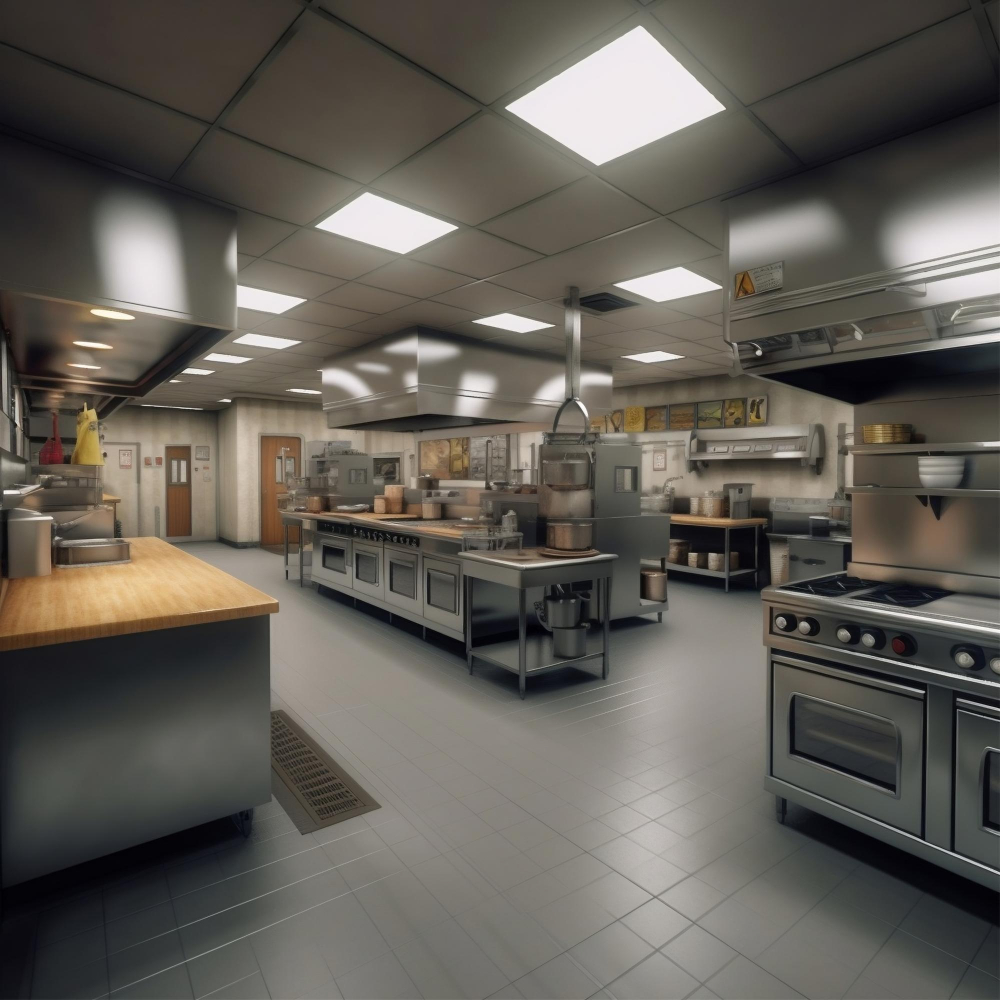
Depending on the type of kitchen and your specific needs, some equipment may be provided by the rental company while others may need to be brought in by you.
For example, if you’re planning on using a commercial kitchen for baking purposes, make sure that there are enough ovens available with sufficient space for all of your trays. If you’re renting a shared kitchen space where multiple people will be cooking at once, check if there are enough stovetops and burners available during peak hours.
Other necessary equipment might include refrigerators/freezers (with adequate storage capacity), sinks (for washing dishes and produce), food processors/blenders/mixers (for preparing ingredients), cutting boards/knives/utensils/pots/pans/baking sheets/scales/measuring cups/spoons/etc., depending on what kind of cooking or baking project is being undertaken.
Storage Solutions
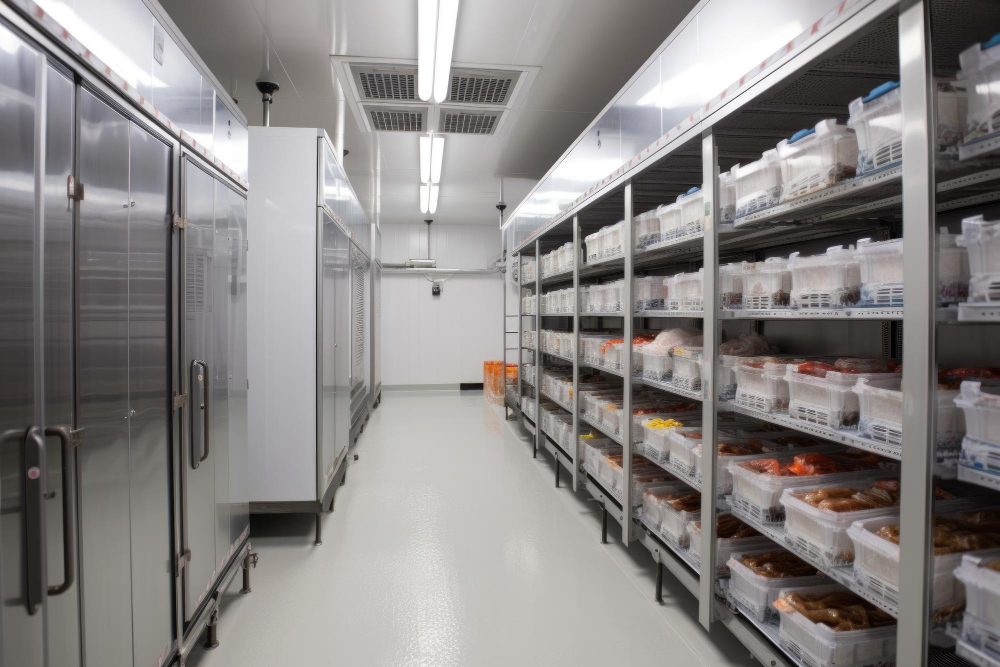
Most rental kitchens come equipped with basic storage options such as cabinets and shelves. However, depending on your needs, you may require additional storage solutions.
Before renting a kitchen space, consider what type of food you will be preparing and how much inventory you need to store. If you plan on making large batches or storing perishable items like meat or dairy products overnight or longer-term basis then refrigeration units are essential.
If there isn’t enough cabinet space available in the rental kitchen for all your cookware and utensils then investing in portable shelving units can help maximize vertical spaces while keeping everything organized.
Another option is using rolling carts that can easily move around the workspace as needed while providing extra counter surface area along with drawers for storing smaller items like spices or measuring cups.
Cleaning Responsibilities
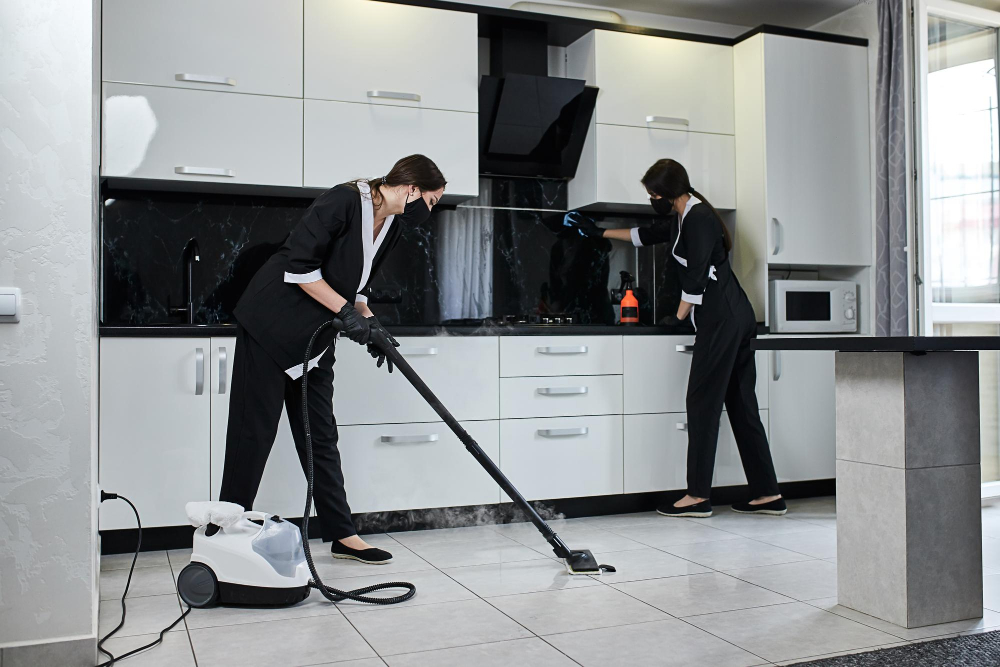
Most rental agreements require renters to leave the kitchen in the same condition as they found it. This means that you are responsible for cleaning up after yourself and leaving all surfaces clean and sanitized.
It’s essential to follow proper food safety guidelines when using a rented kitchen, which includes washing your hands frequently, wearing gloves when handling food, and properly storing ingredients. You should also make sure that all equipment used during your rental period is thoroughly cleaned before returning them.
Some rental companies may offer additional cleaning services for an extra fee or provide basic supplies such as paper towels or sanitizing wipes. However, if these services are not available or included in your agreement, be prepared to bring your own supplies.
Test Kitchens for Product Development
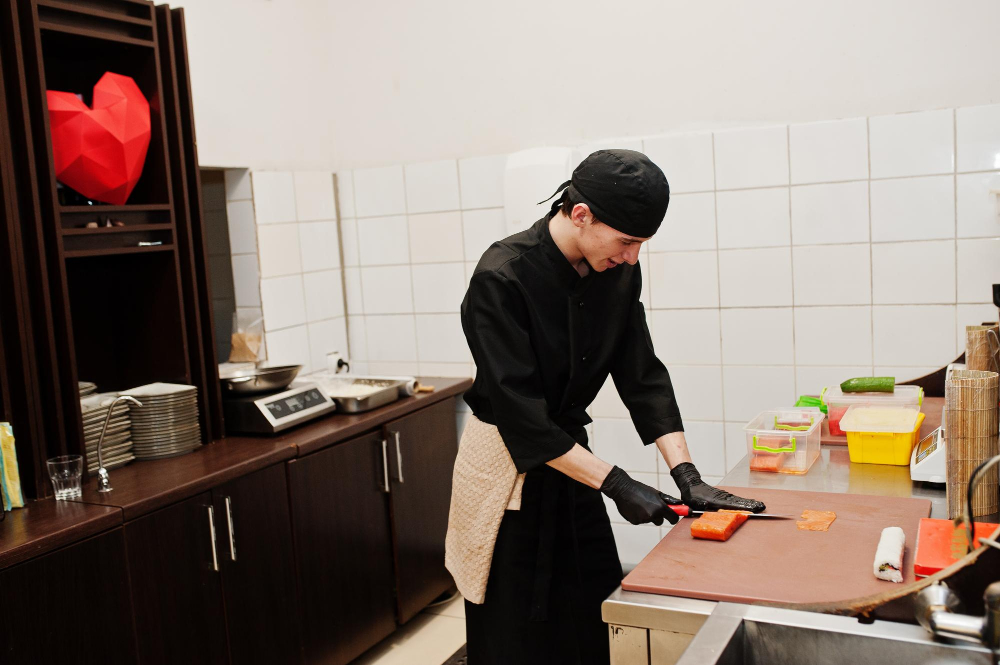
One of the most significant advantages is having access to test kitchens for product development. These kitchens are designed specifically for recipe testing and experimentation, allowing you to perfect your recipes before launching them into the market.
Test kitchens come equipped with all the necessary tools and equipment needed to create new dishes or improve existing ones. You’ll have access to high-quality appliances such as ovens, stovetops, mixers, blenders and more that will help bring your culinary creations to life.
Moreover, these spaces offer ample room for creativity without worrying about making a mess in your own kitchen at home or violating any health codes when experimenting with new ingredients or techniques.
Renting a test kitchen also allows you to collaborate with other chefs who may have different perspectives on how best to prepare certain dishes. This exchange of ideas can lead not only lead to better recipes but also foster relationships within the industry that could prove invaluable down the line.
Culinary Workshops and Classes

Many rental companies offer cooking lessons, food photography courses, recipe development sessions, and other educational programs for aspiring chefs or home cooks looking to improve their skills.
These workshops are usually led by experienced chefs who share their knowledge on various topics such as knife skills, baking techniques, flavor combinations, plating presentations among others. They provide an excellent chance to learn new recipes while also networking with like-minded individuals in a professional setting.
Pop-up Restaurants and Events

These temporary eateries are often hosted in unconventional locations such as warehouses, rooftops or even private homes. Renting a kitchen can be the perfect solution for pop-up restaurant owners who need access to commercial-grade equipment and space to prepare their meals.
In addition to pop-up restaurants, renting a kitchen can also benefit those hosting culinary events such as cooking classes or workshops. With the right rental agreement and scheduling availability, you can create an unforgettable experience for your guests without having to invest in expensive equipment or worry about cleaning up afterwards.
When considering renting a kitchen space for your next event or pop-up restaurant venture, it’s important to research local regulations regarding food preparation and service. Some areas may require specific certifications before allowing you to operate out of rented kitchens.
Whether you’re looking into starting your own business or simply need extra space during peak seasons at home – renting a kitchen is definitely worth exploring!




